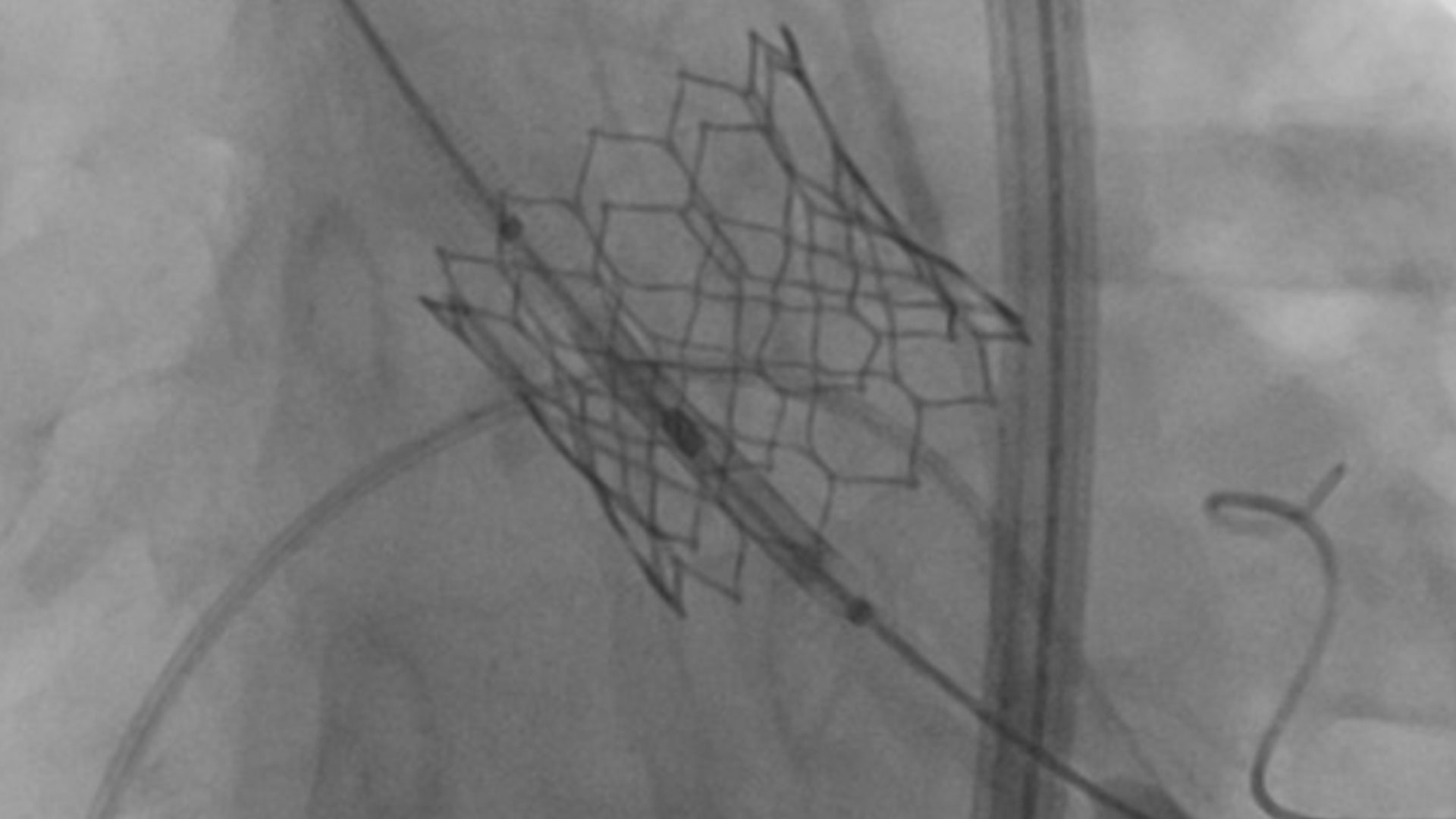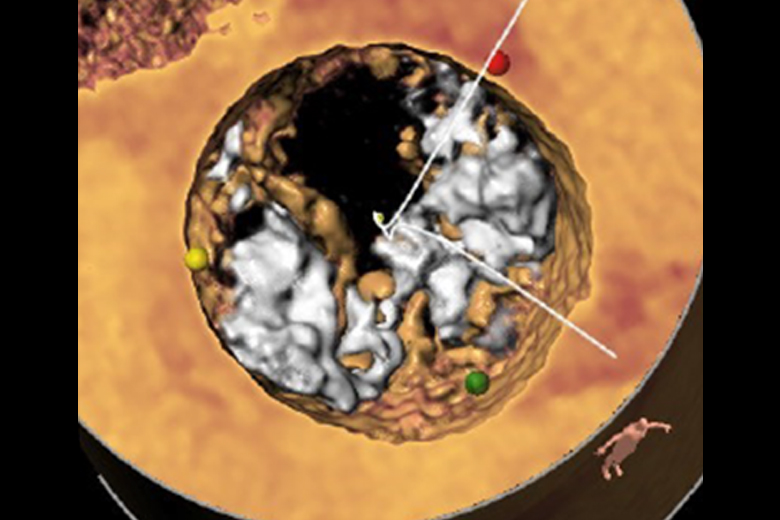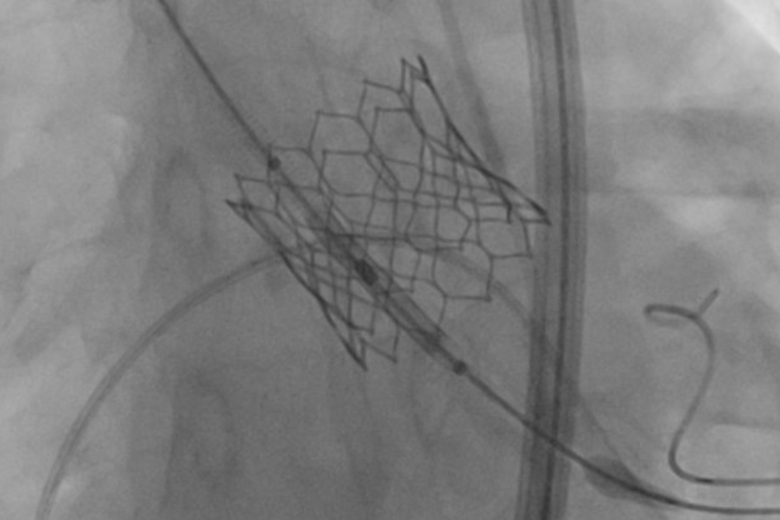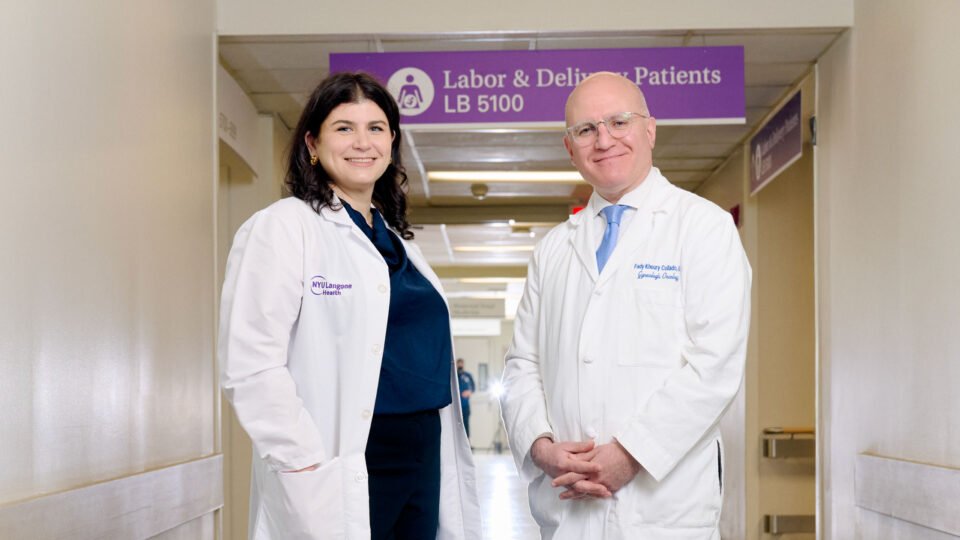TAVR Expertise Treats a High-Risk Pregnancy
A woman’s advanced aortic stenosis detected during pregnancy was successfully treated with transcatheter aortic valve replacement (TAVR) by specialists at NYU Langone Health. The maternal-fetal medicine team, led by Ashley S. Roman, MD, a nationally renowned expert in high-risk pregnancies, quickly identified the case to be more severe than initially described at referral, permitting time for a well-planned second-trimester procedure.
“It was remarkable from my perspective as an obstetrician to see how quickly she responded to the TAVR. It was pretty magic.”
Ashley S. Roman, MD
“It was remarkable from my perspective as an obstetrician to see how quickly she responded to the TAVR,” says Dr. Roman. “It was pretty magic.”
Aortic stenosis is one of the more feared cardiac abnormalities during pregnancy, notes Dr. Roman. The impairment makes it difficult for the body to adjust to the increases in heart rate and blood volume necessary to support a growing fetus. With these changes largely occurring in the last three months of pregnancy, timing TAVR for the second trimester helped minimize the risk of the mother experiencing cardiac failure.
“While TAVR during pregnancy has not yet been studied, we weighed the risk and benefits with mom and offered the procedure as a lower-risk option compared to surgery.”
Mathew R. Williams, MD
Dual-trained in cardiac surgery and interventional cardiology, Mathew R. Williams, MD, director of NYU Langone’s Heart Valve Center, performed the TAVR. Despite the unique case, he emphasizes the straightforward nature of the procedure itself due to his team’s extensive experience with advanced transcatheter technology.
“While TAVR during pregnancy has not yet been studied, we weighed the risk and benefits with mom and offered the procedure as a lower-risk option to fetus and mom compared to surgery,” says Dr. Williams.










